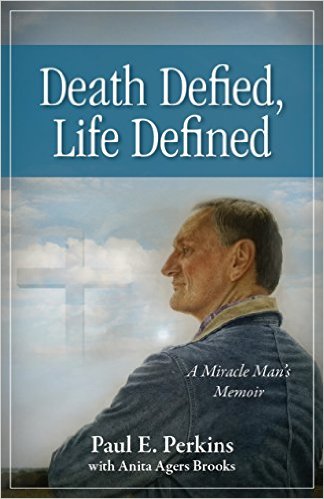 Nationally, there are more than 122,000 people waiting for much-needed organs. As these patients and their families hold out hope for their second chance at life, organ donation organizations manages the list of those individuals across the country, ensuring that the available gifts go to those who are best matched.
Nationally, there are more than 122,000 people waiting for much-needed organs. As these patients and their families hold out hope for their second chance at life, organ donation organizations manages the list of those individuals across the country, ensuring that the available gifts go to those who are best matched.
In the transplant centers, patients are evaluated by transplant physicians to determine if and when they should be placed on the waiting list. The rules that dictate the waiting list vary by organ. General criteria – a patient’s medical urgency, blood, tissue and size match with the donor, time on the waiting list and proximity to the donor – guide the distribution of organs. Special allowances are made for children under certain circumstances. Factors such as a patient’s income, celebrity status, and race or ethnic background play no role in determining allocation of organs.
Local patients also get special attention, when an organ donation happens in their community. The country is divided into 11 geographic regions, each served by an organ procurement organization (OPO) like Gift of Life Donor Program. With the exception of perfectly-matched kidneys and the most urgent liver patients, first priority goes to patients at transplant hospitals located in the region served by the OPO. Next in priority are patients in areas served by nearby OPOs. Finally, only if no patients in these communities can use the organ, it is offered to patients elsewhere in the U.S. The use of a local donor has several medical benefits to the potential recipient: The less time that elapses during the transplant process, the more chance of success the transplant has. It has also been shown that people are more likely to consent to donation if they know that someone in their own community could benefit.
At the center of this is the simple fact that organ transplantation is built upon altruism and public trust. Gift of Life works hard to ensure that this trust is maintained, through its commitment both to the donor family as well as to those on the waiting list.
Average Median Wait Time to Transplant
- Kidney – 5 years
- Liver – 11 months
- Heart – 4 months
- Lung – 4 months
- Kidney / Pancreas – 1.5 years
- Pancreas – 2 years
Todays Guest – Paul E. Perkins
 Paul E. Perkins has worked over fifty years in the banking industry, helping people, growing communities, and investing in future generations. After years of debilitating heart disease, Paul underwent a heart and kidney transplant at the Mayo Clinic in 2014. He died at least two medically confirmed times, and at one point, left the hospital as medical staff cheered the “Miracle Man’s” amazing recovery. He now speaks all over the U.S., inspiring those who fear death, who’ve lost loved ones, and who desire a happier, fulfilled life.
Paul E. Perkins has worked over fifty years in the banking industry, helping people, growing communities, and investing in future generations. After years of debilitating heart disease, Paul underwent a heart and kidney transplant at the Mayo Clinic in 2014. He died at least two medically confirmed times, and at one point, left the hospital as medical staff cheered the “Miracle Man’s” amazing recovery. He now speaks all over the U.S., inspiring those who fear death, who’ve lost loved ones, and who desire a happier, fulfilled life.
Anita Agers Brooks motivates others to dynamic break-throughs. She blends mind, heart, body, and spirit, as an Inspirational Business/Life Coach, International Speaker, and Common Trauma Expert, proving, “It’s never too late for a fresh start with fresh faith.”. Anita is also a multi-published author, including her award winning book, Getting Through What You Can’t Get Over.

coroner,police training, darren dake,sheriff,deputy,coroner association,murder scenes,auto fatalities,csi,first responders,autoerotic fatalities,become a coroner,forensic science crime scene investigation,forensic science crime,scene investigator,forensic training,forensics training,how to be a crime scene investigator,how to become a death investigator,how to become a medical examiner,how to become a medical examiner investigator,medical examiner investigator training,medical investigator training,medicolegal death,medicolegal death investigator training,murder scenes,pictures of murder scenes,murder,real murder crime scenes,traffic deaths,traffic fatalities,what does it take to be a coroner,what does it take to be a criminal investigator,firefighter,fire training,firefighter training,autoerotic fatalities,become a coroner,coroner information,crime scene clean up training,crime scene cleaning training,crime scene cleanup training,crime scene investigation,crime scene investigation classes,crime scene investigator courses,crime scene investigator school,crime scene jobs,crime scene photography,crime scene photography training,crime scene technician,crime scene technician training,crime scene training,criminal investigation,criminal investigator,criminal justice,criminal justice forensic science,criminal justice forensics,criminal scene investigation,death crime scenes,death investigation training,death investigator training,death investigators,forensic death investigator,forensic investigator,forensic photography, crime scene clean up,crime scene bio-hazard, using plants in criminal investigation,forensic botany,dr.jane bock,death investigator magazine,dr judy melinek,badge of life,american college of forensic examiners,acfei,american board of medicolegal death investigators,abmdi,matthew lunn,underwater crime scene,mike berry,online learning,lopa
2 comments on “Death Defied, Life Defined”
Leave a Reply
You must be logged in to post a comment.

Great coverage and education on organ and tissue donation. Personal stories very encouraging. Thank you for sharing this topic. I have sent this to our media staff to place on our professional web page.
Hi Pam,
This is Anita Brooks, one of the guests on this program. (Co-author and living donor.) Thank you so much for your kind words. I’m sure you could tell, we are both very passionate about this topic.